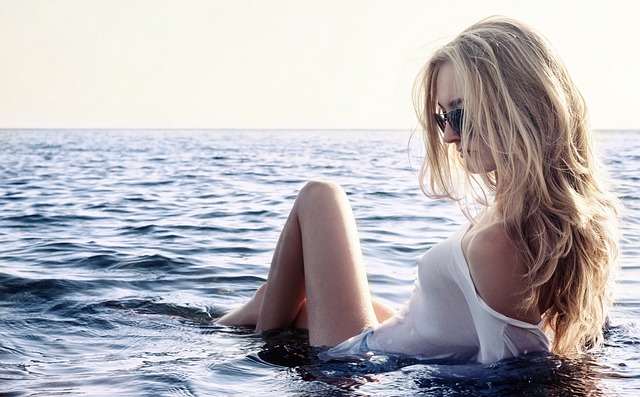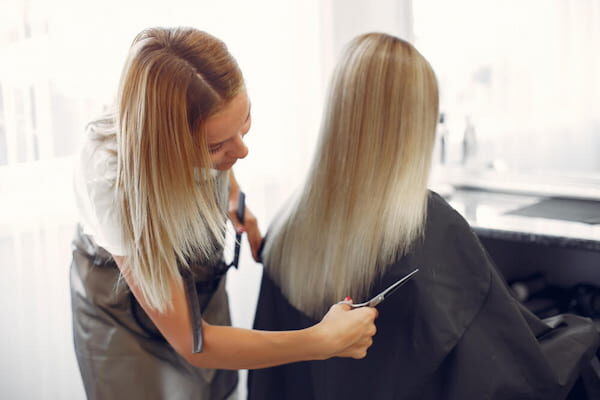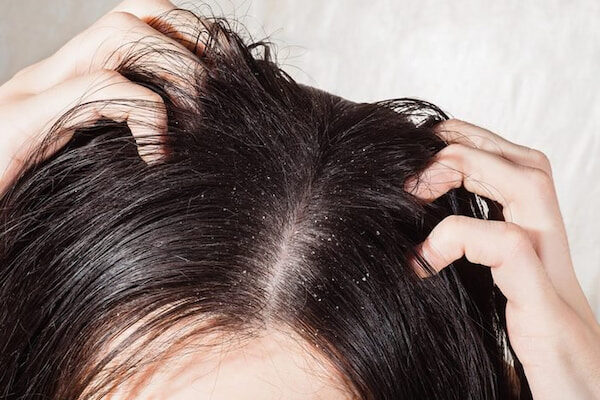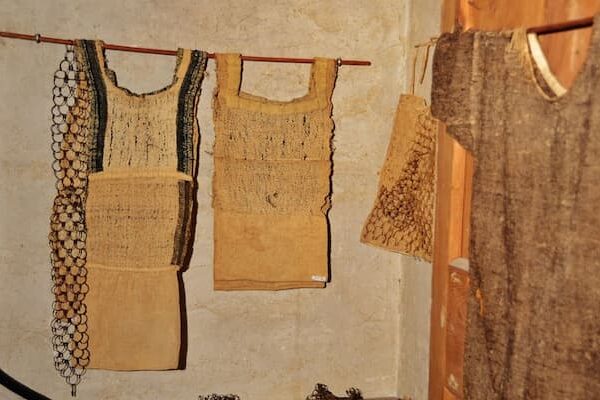Almost everyone is concerned with hair texture for various reasons. You don’t have much time for proper hair care due to your busy lifestyle and busy schedule. The damage has already been done by the time you begin using healthy hair care techniques. Water quality, on the other hand, is a crucial aspect that lots of people disregard.
So, what does hard water do to your hair?
Hard water is one of the main reasons for excessive hair loss. Your scalp will become dry, causing dandruff, and your hair will become curly and coarse from using hard water.
Unfortunately, a lot of people are unaware of how harmful hard water can be.
For more information, continue reading.
Table of Contents
What Effect Does Hard Water Have On Hair?
An exaggerated example of what hard water can do to your hair is to imagine how dry and crunchy it feels after you let it air dry after swimming in the ocean. The mineral residue—in this case, sodium, though at a much higher concentration than in typical tap water—that is clinging to your hair as the water evaporates is what gives your hair that crispy feeling.
The same is true of tap water’s minerals. “While your hair is wet, the minerals from hard water can penetrate your strands and crystallize as your hair dries,” says hairstylist Devin Toth. “Your hair cannot absorb or expel moisture due to the cast that the crystallization leaves behind.” Because of this, hair will be drier and duller and more prone to tangling and breakage.
All people with hard water are susceptible to damage, but some hair types may experience it slightly more than others. “Hair textures that are highly porous are more susceptible to minerals penetrating deeper into the hair structure, making it more susceptible to hard water,” says trichologist Bridgette Hill. “This includes hair that has been chemically or color treated.” Toth adds that because curly hair is already more prone to dryness and frizz, it will also be affected by hard water to a slightly greater extent.
Mineral accumulation can lead to a domino effect of other problems over time. Sulfate-free products are those that are truly color-safe because they won’t cause colored hair to fade or change. You might observe that your scalp is drier, flakier, or even greasier than usual. Your hair may become weighed down, and flat hairstyles may result. Even skin that is prone to eczema may become irritated.
The Effect Of Hard Water On Hair
However, there are some drawbacks when it comes to the skin and hair, even though hard water itself is not harmful.
One 2016 study
Trusted Source
involving 15 females found that hard water damaged hair. This was discovered after 30 days of washing hair samples in both hard water and distilled water.
The hard water sample hair had lost some of its thickness by the time the study was finished and looked ruffled.
Additional hair symptoms you may experience from washing your hair in hard water include:
- breakage
- thinning
- tangles
- dry scalp
- dullness
- brassiness or a green hue
- frizziness
Some people have even lost hair as a result of hair breakage.
How To Know If You Have Hard Water?
The good news is that there are several ways to determine what kind of water you have, so you won’t have to spend too much time doing detective work if you’re trying to determine whether you have hard water.
Mineral residue is left behind when hard water evaporates. You are looking at a mineral deposit from your water if you have ever noticed water droplet residue on a glass after you take it out of the dishwasher. The same goes for your faucets and appliances, “Look for filmy, crystallized hard water deposits on your shower head,” says Toth, it’s a sure sign that you have hard water if you’re constantly battling a powdery white or greenish coating on and around your faucets. See more about Why Does My Hair Feel Waxy After Washing?
Signs Of Hard Water On Hair
It can be challenging to determine whether your water is soft or hard and whether hair damage is a result of other factors or of water-related issues. Here are three indicators of hard water on hair to aid in recognizing the differences.
Dry Hair
It might be a sign of hard water if your hair is excessively dry despite the shampoo and conditioner you use. Hard water has minerals in it that act as a barrier to stop moisture from reaching the hair. In the future, excessive dryness in hair from hard water washing could cause other issues.
Hair Damage And Breakage
Hard water can weaken hair strands and follicles over time if used regularly. Because of this, the hair will be more susceptible to breakage and damage. Simple hair care practices like daily brushing and simple hairstyles (like ponytails) may exacerbate the harm that hard water has already done to hair.
Hair Loss
Your hair’s strands are not the only thing that hard water can affect. In extreme circumstances, hard water can damage your scalp and cause hair loss, but this is a less frequent symptom of hard water on hair alone. People who also have psoriasis and eczema are more likely to suffer from hard water hair loss.

Repair Hair That Has Been Damaged From Hard Water
These methods ought to work if you’re trying to revive damaged hair.
Install A Water Softener Shower Head
The contrast between hard water and soft water is basically that. Although it has some minerals, they are not nearly as concentrated as in hard water.
This implies that it’s more hygienic and healthy. Although installing a water softener in your home is the best way to purify your water, this can be quite expensive.
Investing in a water softener shower head is a more economical option.
“These [shower heads] have cartridges that are filled with carbon to remove the minerals before the water touches the hair,” says Martino Cartier, a hairstylist and proprietor of the Martino Cartier Salon
Use A Clarifying Shampoo
According to Maria Elizabeth, owner of Salon deZen, a clarifying shampoo can restore hair that has been harmed by hard water.
“The best way to restore the hair to its former glory is to remove the mineral build up,” Elizabeth says.
Use it at least once a week and choose one “that focuses on this issue and not just removal of styling product buildup,” Elizabeth explains.
Apply A Hair Mask
Use a nourishing hair mask at least twice per week to rehydrate and brighten your locks.
“Make sure you’re massaging well into the scalp and working it through to the tips of your hair,” Lin advises. “Masks should be left on for at least 5 minutes.”
A leave-in conditioner can also soften the hair. Choose a low pH option, advises Elizabeth. “The cuticles will help to close again, keeping the moisture inside and the minerals outside.”
Try A Citrus And Vinegar Rinse
Start at the scalp to prevent damage from hard water.
“You’ll find that a mixture of water, vinegar, and a citrus juice of some sort is a good natural solution for treatment,” Lin says.
Given that it lowers the pH of the hair and contains vitamins B and C that are good for healthy hair, apple cider vinegar is a good alternative.
You’ll probably experience low water pressure in the shower and in your sinks because the minerals in hard water tend to accumulate and coat pipes and faucets. When a sink is turned up to 10, if you don’t feel like you’re getting enough power, hard water may be the cause.
Another red flag could be in your hair. “If your shampoo takes an extra long time to lather or properly distribute, then you may have hard water,” says Toth. “It’s also possible that your hair is being impacted by hard water if your high-quality conditioner doesn’t seem to work and your hair feels dry and tangled after using it.”
In the end, the most surefire way to detect hard water is to purchase a small hard water testing kit. Although there are numerous equally reliable alternatives to the Life2O Water Hardness Test Strips ($10 for 100), trichologist David Adams recommends them. Simply dip a test strip in a cup of water, wait a minute, and compare your results to a color chart to use them. They’re typically inexpensive and simple to use.
Ways To Wash Hair In Hard Water
Do you only have access to hard water for showering? The good news is that you can still avoid damage by washing your hair properly.
Cartier advises that you begin by concentrating on your scalp. When not using a clarifying shampoo, pick a sulfate-free option whenever possible.
In order to avoid stripping the hair, this will help remove extra oil and debris.
Dr. if hair loss is a problem. Angelos says to rinse hair in the direction of natural growth, “from the crown forward toward the forehead.”
Make sure the hair is completely rinsed before adding conditioner, advises Paul Labrecque, a celebrity hairstylist and artistic director of Paul Labrecque Salon and Skincare Spa.
If you have the courage, Labrecque advises finishing your bath or shower with cold water to seal your cuticles.
Prevent Hard Water Damage To Your Hair
The best way to avoid damaging your hair from hard water is to purchase and install a water softener. Most of the minerals in hard water that harm hair are removed by water softeners. Your hair won’t develop the water-blocking film that dries it out with a much lower mineral concentration. With soft water, your scalp is also less likely to itch, further avoiding problems like hair loss.
Prior to installing a water softener, choose the best system for your home. In this area, there are a variety of options with varying brand and capacity. Choosing the proper size is crucial, and it depends on your water demand and, generally, the size of your household. Problems with water delivery may arise if your system is not big enough to handle your water demand.
Although it is possible to install a water softening system yourself, you may want to think about getting a plumber’s assistance to make sure the job is done correctly. There are also solutions to preventing hard water damage if you are unable to install a water softener…
Conclusion
For almost everyone, hair texture is a cause for concern. You have little to no time to maintain a proper hair care routine because of your hectic schedule and hectic lifestyle. The damage is already done by the time you begin a healthy hair care regimen. The quality of the water is a crucial element that many people overlook. One of the main causes of excessive hair fall is hard water, which is fairly common in most parts of India. Hard water dries out your scalp, which causes dandruff, and makes your hair frizzy and coarse. Unfortunately, a lot of people are unaware of how bad hard water is for you.
We appreciate you reading.





